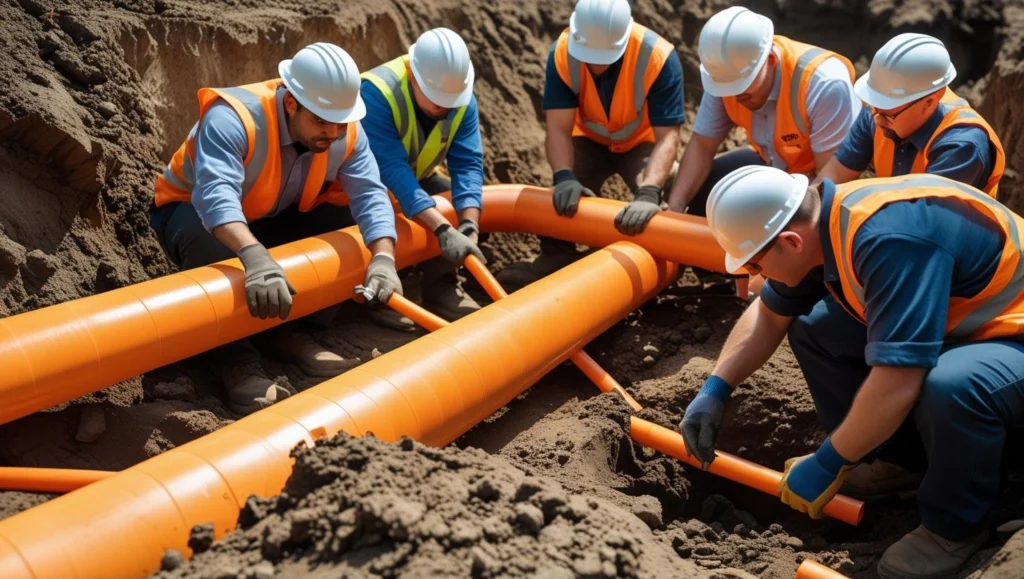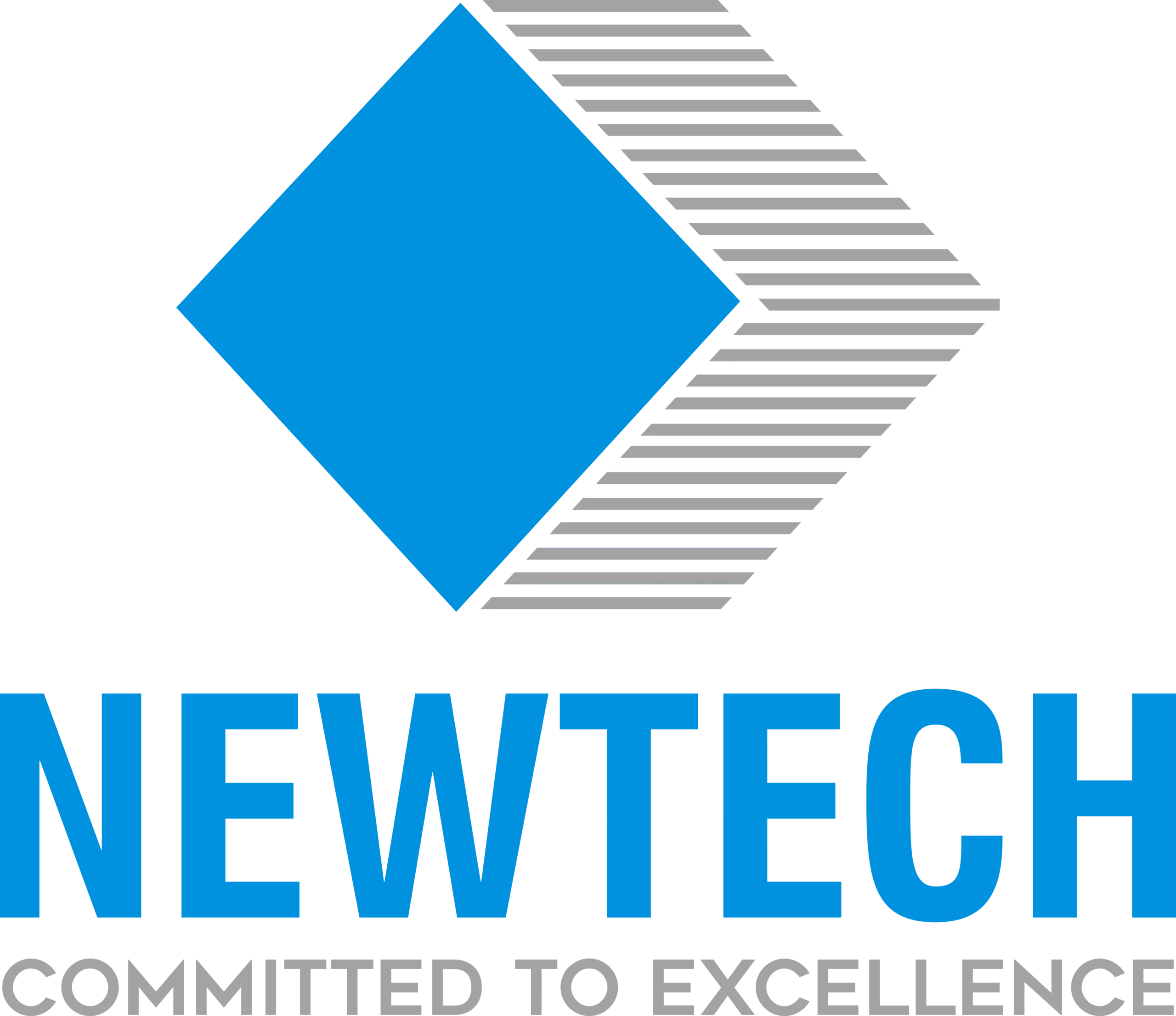Plastic pipes are replacing outdated materials in Pakistan’s infrastructure. With long life, strength, and easy installation, they are used in water, gas, telecom, and industrial systems. NEWTECH-Pipes leads this shift with ISO-certified, high-performance plastic pipe solutions delivered nationwide to power infrastructure that lasts.
Why Plastic Pipes are Necessary for Pakistan’s Infrastructure Development?
Demand for durable, long-lasting, and affordable pipeline options is increasing in Pakistan. Infrastructure development projects need to use materials that are stress-resistant, corrosion-proof, and can last for decades. Plastic pipes fulfill all these needs.
Plastic pipes are also convenient to install. Being lightweight, they lower transport and labor expenses. For instance, a plastic pipe may be transported and installed by two employees, whereas metal pipes frequently require cranes or heavy equipment. Quicker installations and fewer safety hazards are thus ensured.
Major Benefits of Plastic Pipes in Infrastructure Projects
Durability and Longevity
Plastic pipes withstand wear, pressure, and temperature fluctuations. Their extended lifespan makes them suitable for long-term infrastructure applications.
Corrosion Resistance
Plastic does not corrode, such as iron or steel. This translates to zero deterioration over time and no hassle performance.
Leak-Free Installation
Fusion-welded plastic pipes prevent leaks, conserving water and energy resources.
Lightweight
Plastic pipes are significantly lighter than metal or concrete, reducing transportation and handling costs and complications.
Cost-Effective
The total cost of plastic piping—from acquisition to installation and maintenance—is lower than conventional counterparts.
Environmentally Friendly
The majority of plastic pipes are recyclable and use less energy during the manufacturing and installation process, which aids in attaining the goal of sustainability.
Uses of Plastic Pipes in Pakistan’s Infrastructure
Plastic pipes have applications in many sectors in Pakistan. Some of the most frequent uses are:
Water Supply
Plastic pipes are utilized by cities such as Lahore, Islamabad, and Faisalabad in underground water supply because they are hygienic in nature and are leak-proof.
Gas Distribution
HDPE pipes are utilized for urban and rural gas supply owing to their resistance to pressure and safety.
Sewerage and Drainage
Plastic pipes are not corrosive or resistant to chemicals in sewerage waste and can therefore be used for durable sewerage systems.
Electrical and Telecom Conduits
Telecom and electric cables are routed safely through plastic conduit pipes, safeguarding them from weather and misuse.
Agricultural Irrigation
PVC and HDPE pipes are utilized in drip and sprinkler irrigation by farmers for efficient delivery of water and minimized wastage.
Industrial Piping
Plastic pipes are employed in factories and chemical industries for the safe transportation of chemicals, oils, and wastewater.
Types of Plastic Pipes Produced by NEWTECH-Pipes
NEWTECH-Pipes is Pakistan‘s go-to plastic piping solution supplier. They deal in a complete line of products for every infrastructure requirement:
HDPE Pipes
High-density polyethylene pipes employed in water, gas, and industrial systems. Pressure-resistant and durable.
PVC Pipes
Applied in drainage, irrigation, and electric conduit. PVC is light, inexpensive, and simple to install.
PPRC Pipes
Polypropylene random copolymer pipes applied to hot and cold water systems. Hygienic and heat resistant.
MDPE Pipes
Medium-density polyethylene pipes utilized in gas and water supply networks.
Electric Conduit Pipes
Applied to insulate electric wires in houses, buildings, and factories.
NEWTECH-Pipes: Pioneering Plastic Pipe Production
NEWTECH-Pipes is ISO 9001:2015 certified and distributes plastic pipes throughout Pakistan. NEWTECH-Pipes utilizes the latest German technology and deploys experienced engineers in order to maintain product quality.
NEWTECH-Pipes pipes are utilised in government contracts, private construction, agriculture, and industrial premises. From Karachi to Gilgit, their countrywide distribution fuels Pakistan’s infrastructural surge.
They even extend technical support and bespoke fittings to complement project requirements.
Environmental Benefits of Plastic Pipes
Plastic pipes are not just useful but also sustainable:
- They minimize leakage, saving water and gas resources.
- They are recyclable and save waste over metal or concrete substitutes.
- They consume less energy in production and transportation.
- Their extended lifespan translates to fewer replacements and less material consumption.
As Pakistan experiences climate and resource issues, plastic pipes play a part in intelligent, eco-friendly infrastructure.
Future Perspective: Why Plastic Pipes Are Going to Remain
The need for plastic pipes in Pakistan will only increase. The more cities use smart infrastructure and resource-efficient practices, the more plastic pipes will be the center of it all.
All urban housing schemes, CPEC-related projects, agriculture extension, and connectivity projects all depend on piping systems. Plastic pipes provide cost, performance, and sustainability benefits that conventional materials just can’t provide.
NEWTECH-Pipes is poised to answer to this future, with proven quality and countrywide delivery.
Conclusion
Plastic pipes are transforming the future of infrastructure in Pakistan. Their durability, flexibility, and cost-effectiveness make them the optimal solution for anything from water supply to industrial waste networks. NEWTECH-Pipes is at the forefront of this change, providing top-of-the-world plastic piping solutions that facilitate sustainable development and infrastructure development nationwide.
Frequently Asked Questions (FAQs)
1. Why are plastic pipes better than metal pipes in infrastructure projects?
Plastic pipes don’t rust, are lighter, easier to install, and cost less in transportation and maintenance. Their flexibility also makes them ideal for complex infrastructure designs.
2. Are plastic pipes safe for drinking water distribution?
Yes, plastic pipes like HDPE and PPRC are non-toxic and certified for potable water. They resist contamination and keep drinking water clean, even over long distances.
3. How long do plastic pipes typically last in real-world conditions?
Plastic pipes can last 50 years or more if installed correctly. They resist wear, corrosion, and pressure, making them ideal for long-term infrastructure investments.
4. Can plastic pipes handle high pressure and temperature?
Yes, especially HDPE and PPRC pipes. They are engineered to handle high water pressure and temperature variations without cracking, deforming, or leaking under stress.
5. What are the main types of plastic pipes used in Pakistan?
HDPE, PVC, PPRC, MDPE, and electric conduit pipes are widely used across Pakistan for water, gas, electrical, and telecom systems in both urban and rural areas.
6. Are plastic pipes environmentally friendly and recyclable?
Yes, many plastic pipes are recyclable and reduce resource wastage. They’re energy-efficient to manufacture and help prevent water loss through leak-free joints and long durability.
7. Where are plastic pipes used in infrastructure projects?
Plastic pipes are used in water supply, gas distribution, sewage, electrical conduits, and irrigation systems across construction, agriculture, telecom, and utility sectors.
8. What makes HDPE pipes popular for large-scale infrastructure?
HDPE pipes are leak-proof, pressure-resistant, and flexible. They perform exceptionally in water and gas systems, even in tough terrains or seismic zones.
9. Is NEWTECH-Pipes a reliable supplier of plastic pipes in Pakistan?
Yes, NEWTECH-Pipes is ISO 9001:2015 certified and trusted nationwide. They offer durable, high-quality plastic pipes and fittings for industrial, residential, and public projects.
10. How are plastic pipes joined and installed in the field?
Plastic pipes are joined using techniques like butt fusion or solvent welding. These create strong, leak-free joints that require minimal maintenance over the system’s lifetime.


